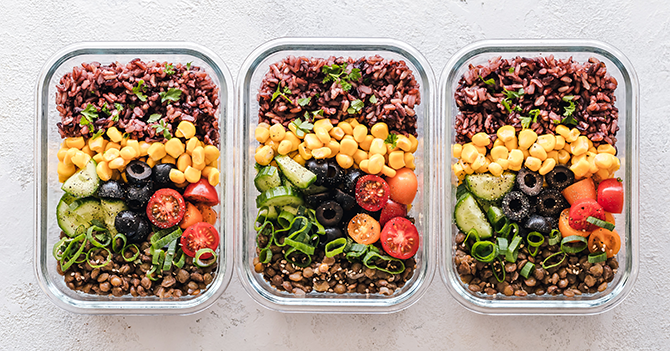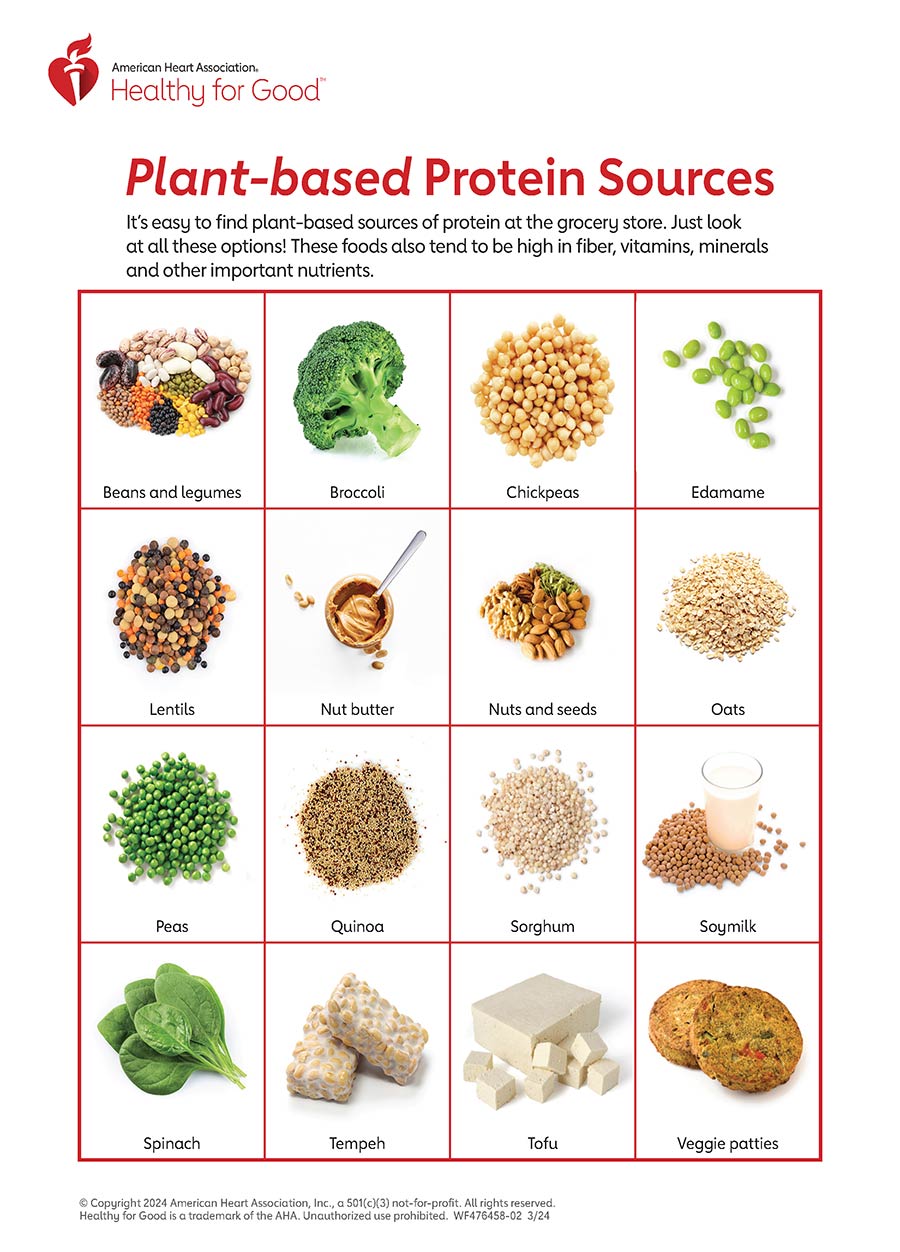Everything About Healthy Food: Benefits of Taking On Plant Based Choices
The discussion surrounding plant-based diets has actually obtained substantial focus in recent times. Lots of individuals are exploring the potential wellness advantages, nutritional advantages, and ecological effects related to these nutritional options. As people become extra knowledgeable about their food's impact on well-being and sustainability, questions emerge regarding the practicalities of adopting such a way of life. What certain changes can one anticipate, and exactly how might these choices reshape not only individual health and wellness but additionally the world's future?
Understanding Plant-Based Diet Regimens
Several people link plant-based diet plans mainly with vegetarianism or veganism, these diet plans can encompass a large range of eating patterns that focus on whole, minimally refined plant foods. Such diet plans often consist of fruits, veggies, whole grains, vegetables, seeds, and nuts, while removing or limiting pet items. This flexibility enables people to tailor their nutritional choices according to dietary needs and personal choices. Some might adopt a mainly plant-based diet plan while still occasionally consuming meat or dairy products, usually referred to as a flexitarian technique. The emphasis remains on incorporating more plant foods, which can bring about a diverse range of tastes and dishes. Understanding these various interpretations of plant-based eating is essential for appreciating its ease of access and charm in modern food society.
Wellness Benefits of Plant-Based Foods
The health benefits of plant-based foods are significant, providing a nutrient density advantage that sustains total health. Study indicates that these foods can improve heart health and play an important function in efficient weight management. By including a lot more plant-based choices, people might enhance their nutritional selections and promote long-term health and wellness.
Nutrient Density Benefit
Nutrient density plays an essential duty in the health advantages of plant-based foods, making them an engaging option for those looking for a well balanced diet regimen. Plant-based foods, such as fruits, veggies, vegetables, nuts, and whole grains, are usually abundant in essential vitamins, minerals, and anti-oxidants while being reduced in calories. This high nutrient thickness permits individuals to consume less calories while still satisfying their nutritional needs. Additionally, these foods are loaded with nutritional fiber, promoting digestion health and wellness and helping in weight monitoring. By incorporating nutrient-dense plant-based alternatives, customers can enhance their total wellness, support their immune systems, and lower the danger of persistent conditions. Eventually, the nutrient density of plant-based foods underscores their relevance in a health-conscious way of living.
Heart Health Improvement

Weight Administration Support
In enhancement to promoting heart health, a plant-based diet regimen can substantially aid in weight monitoring. This dietary approach stresses whole foods such as fruits, veggies, vegetables, nuts, and entire grains, which are typically lower in calories and higher in fiber contrasted to animal-based items. The high fiber web content helps raise satiety, decreasing overall calorie consumption. Furthermore, plant-based diets are typically abundant in essential nutrients while reduced in unhealthy fats, making it much easier to preserve a healthy weight. BBQ Sauces. Research study shows that people who embrace a plant-based way of life have a tendency to have reduced body mass indexes (BMIs) and experience more successful weight loss contrasted to those that eat meat-heavy diets. As a result, accepting plant-based alternatives is a strategic choice for effective weight management
Nutritional Worth of Plant-Based Active Ingredients
Plant-based active ingredients are abundant in essential nutrients, providing a diverse range of vitamins, minerals, and antioxidants that add to general wellness. A contrast of healthy protein resources exposes that while animal products are commonly watched as premium, several plant-based options provide adequate protein and various other helpful compounds. Recognizing the nutritional value of these active ingredients can help individuals make informed nutritional options.
Vital Nutrients in Plants
Nutrient-rich components discovered in plants provide a diverse array of necessary minerals and vitamins that contribute greatly to total health. These ingredients are rich in vitamins A, C, and K, which sustain immune function, vision, and blood clotting, respectively. Furthermore, plants give vital minerals such as calcium, potassium, and magnesium, critical for heart my response wellness, muscle mass function, and bone toughness. The existence of fiber in plant-based foods aids digestion and advertises a healthy intestine microbiome. Antioxidants, located generously in veggies and fruits, help fight oxidative stress and anxiety and decrease inflammation. Additionally, numerous plant foods are low in calories yet high in nutrients, making them an outstanding selection for those seeking to keep a healthy weight while making sure suitable nutrient intake.
Contrasting Healthy Protein Resources
Healthy protein sources vary considerably in their dietary accounts, with plant-based ingredients providing unique benefits. Unlike pet proteins, which typically include saturated fats and cholesterol, plant healthy proteins often tend to be reduced in these unhealthy components. Legumes, nuts, seeds, and entire grains are rich in important amino acids, fiber, vitamins, and minerals. Lentils give high protein content along with considerable iron and folate, while quinoa is a full protein, offering all 9 important amino acids. In addition, plant-based proteins are often gone along with by antioxidants and phytochemicals that sustain overall wellness. The shift to plant-based healthy protein sources not only boosts nutritional consumption but additionally aligns with lasting nutritional practices, lowering environmental effect and promoting long-lasting wellness benefits.
Ecological Impact of Plant-Based Eating
As recognition of climate modification expands, numerous people are exploring sustainable nutritional selections that can significantly decrease their environmental footprint. Plant-based consuming has actually become a substantial factor to decreasing greenhouse gas discharges, which are largely related to livestock production. The growing of fruits, grains, legumes, and vegetables usually needs less sources, such as water and land, contrasted to animal farming. Additionally, plant-based diet plans can cause lowered logging, as much less land is required for grazing livestock or growing animal feed. By shifting in the direction of plant-based alternatives, customers can sustain biodiversity and advertise healthier communities. Generally, accepting plant-based consuming not just advantages personal health and wellness yet additionally stands for an essential action towards ecological sustainability and preservation efforts.
Overcoming Common Misconceptions
While numerous people identify the advantages of a plant-based diet regimen, numerous false impressions frequently discourage them from fully embracing this lifestyle. A common idea is that plant-based diet regimens do not have adequate protein; however, numerous plant resources, such as beans, nuts, and tofu, supply adequate protein. Additionally, some think that this diet regimen is costly, when actually, staples like beans, rice, and seasonal vegetables can be fairly affordable. An additional false impression is that plant-based consuming is overly limiting, whereas it actually supplies a diverse selection of tastes and foods. Lastly, many stress that a plant-based diet regimen might cause deficiencies, yet with correct planning, people can acquire all required nutrients, consisting of nutrients, while taking pleasure in a wide range of tasty dishes.
Tips for Transitioning to a Plant-Based Lifestyle
Making the change to a plant-based lifestyle can be an improving experience, though it frequently calls for some assistance to browse the initial modifications. People are encouraged to start progressively, incorporating more fruits, veggies, beans, and whole grains into their meals while minimizing meat and dairy consumption. Meal preparation is essential; preparing a weekly menu can assist reduce the change and avoid final undesirable choices. Discovering cooking approaches and brand-new recipes can additionally improve the experience and keep exhilaration regarding plant-based eating. Furthermore, signing up with support system or areas can give inspiration and share important ideas. Remaining educated concerning nourishment warranties balanced dishes, preventing shortages while cultivating a healthy and balanced, rewarding plant-based way of life.

Delicious Plant-Based Meal Concepts
Exploring tasty plant-based dish concepts can inspire individuals to welcome a more healthy diet plan. One popular option is a their explanation hearty quinoa salad, including cherry tomatoes, cucumber, and a zesty lemon-tahini clothing. One more fave is a savory lentil stew, packed with carrots, celery, and aromatic natural herbs, ideal for a calming dinner. For breakfast, overnight oats made with almond milk, chia seeds, and covered with fresh berries supply a nutritious start to the day. Furthermore, a lively veggie stir-fry with tofu and a range of colorful veggies can be a quick yet satisfying meal. Lastly, luscious avocado toast on whole-grain bread, sprinkled with seasonings and seeds, supplies a basic yet flavorful snack. These meals showcase the range and splendor of plant-based eating.

Often Asked Inquiries
Can a Plant-Based Diet Regimen Provide Sufficient Protein?
The question of whether a plant-based diet regimen can give sufficient protein is typical. Many sources, including legumes, nuts, seeds, and whole grains, can fulfill protein needs efficiently, supporting a healthy and balanced diet regimen for people.
Are Plant-Based Diets Suitable for Children?
The suitability of plant-based diet plans for children depends on cautious preparation. Adequate nutrients should be ensured, consisting of minerals, vitamins, and proteins. With proper assistance, such diet regimens can sustain healthy and balanced development and advancement in youngsters.
Just how Do I Eat Out on a Plant-Based Diet plan?
Eating in restaurants on a plant-based diet plan entails seeking restaurants with varied menus, requesting for adjustments, and exploring vegan-friendly options. Preparation ahead and interacting dietary preferences can improve the eating experience while keeping nutritional options.
What Are Common Irritants in Plant-Based Foods?
Usual allergens in plant-based foods include soy, gluten, nuts, and seeds - BBQ Sauces. People following a plant-based diet needs to recognize these irritants and read tags very carefully to avoid browse around these guys unfavorable responses and ensure risk-free consumption
Can Plant-Based Diets Assist With Weight Loss?
Research study shows that taking on a plant-based diet regimen might promote weight-loss as a result of its usually reduced calorie density and higher fiber web content. This combination can enhance satiety, assisting individuals manage their calorie consumption successfully. Numerous people connect plant-based diets mostly with vegetarianism or veganism, these diet plans can encompass a large range of eating patterns that focus on whole, minimally refined plant foods. Nutrient thickness plays a vital role in the health benefits of plant-based foods, making them an engaging selection for those seeking a balanced diet plan. Plant-based diet plans have been shown to markedly improve heart health and wellness, as they typically include components that support cardiovascular function. In enhancement to promoting heart wellness, a plant-based diet plan can considerably assist in weight management. A common belief is that plant-based diet regimens lack enough protein; nevertheless, various plant resources, such as beans, nuts, and tofu, supply ample protein.